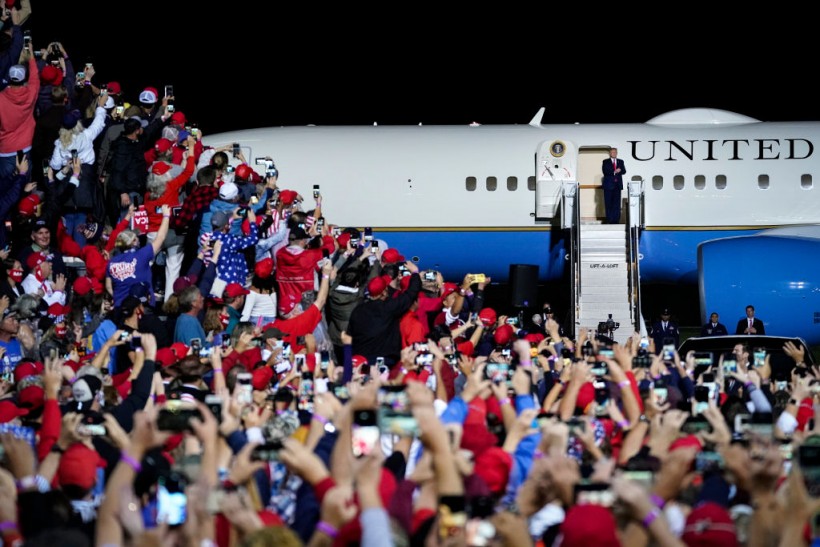The Federal Election Commission is sparking a discussion on the permissible usage of artificial intelligence (AI) within political campaigns.

(Photo : Drew Angerer/Getty Images)
NEWPORT NEWS, VA - SEPTEMBER 25: U.S. President Donald Trump arrives for a campaign rally at Newport News/Williamsburg International Airport on September 25, 2020 in Newport News, Virginia.
Regulating AI Within Political Campaigns
In response to a petition, the Federal Election Commission (FEC) is currently directing its attention towards the potential regulation of political advertisements that employ artificial intelligence (AI) to distort the image of opposing candidates.
Interesting Engineering reported that this matter has gained prominence as the United States approaches the 2024 presidential election. The growing use of generative AI in the past year has led to an increase in creating fake images that look incredibly real. This has resulted in more deepfakes or manipulated content that closely resembles someone, looking very much like the actual person.
In the realm of politics, this technology could be employed to falsely attribute statements or actions to an opponent, thereby deceiving the voters.
The unanimous procedural vote by the FEC on Thursday has propelled forward a petition aimed at regulating advertisements that utilize artificial intelligence to depict political opponents as engaging in actions or making statements they never did. This significant concern is already gaining attention within the ongoing 2024 GOP presidential primary.
While the dissemination of persuasive counterfeit images, videos, or audio clips is not a new trend, the advent of innovative generative AI tools has rendered them more affordable, user-friendly, and effective in shaping public perception.
Consequently, several presidential campaigns participating in the 2024 race, such as that of Florida GOP Governor Ron DeSantis, have begun employing these tools to sway the opinions of voters.
Responding to a Petition
While the FEC has taken the initial step of exploring this concern, the agency's commissioners remain uncertain about their authority to oversee deepfake advertisements and whether such regulation could potentially conflict with the protections afforded by the First Amendment.
Just recently, Axios reported that the advocacy group Public Citizen posed a query to the FEC regarding the applicability of federal laws on "fraudulent misrepresentation" to deepfakes. The federal agency has since acknowledged its intention to examine this inquiry.
Looking Into the Matter
FEC's authority remains constrained in relation to ads orchestrated by political action committees (PACs) or even individual social media users, as they lie outside its realm of jurisdiction. With the increasing integration of generative AI into mainstream use, the technology's affordability is also on the rise, amplifying the likelihood of individuals sharing deepfake content.
Also Read: BBC Debunks AI-Generated Picture of Donald Trump, Young Michael Jordan Playing Basketball
During Thursday's meeting, Associated Press reported that Republican Commissioner Allen Dickerson voiced his skepticism regarding the agency's jurisdiction over regulating deepfake advertisements. He stated, "I'll note that there's absolutely nothing special about deepfakes or generative AI, the buzzwords of the day, in the context of this petition."
He further elaborated that if the FEC were to possess such authority, it would imply the capacity to penalize various forms of manipulated media or false information present in campaign advertisements.
Related Article: Experts Warn of AI-Generated Misinformation in 2024 US Election Campaigns






